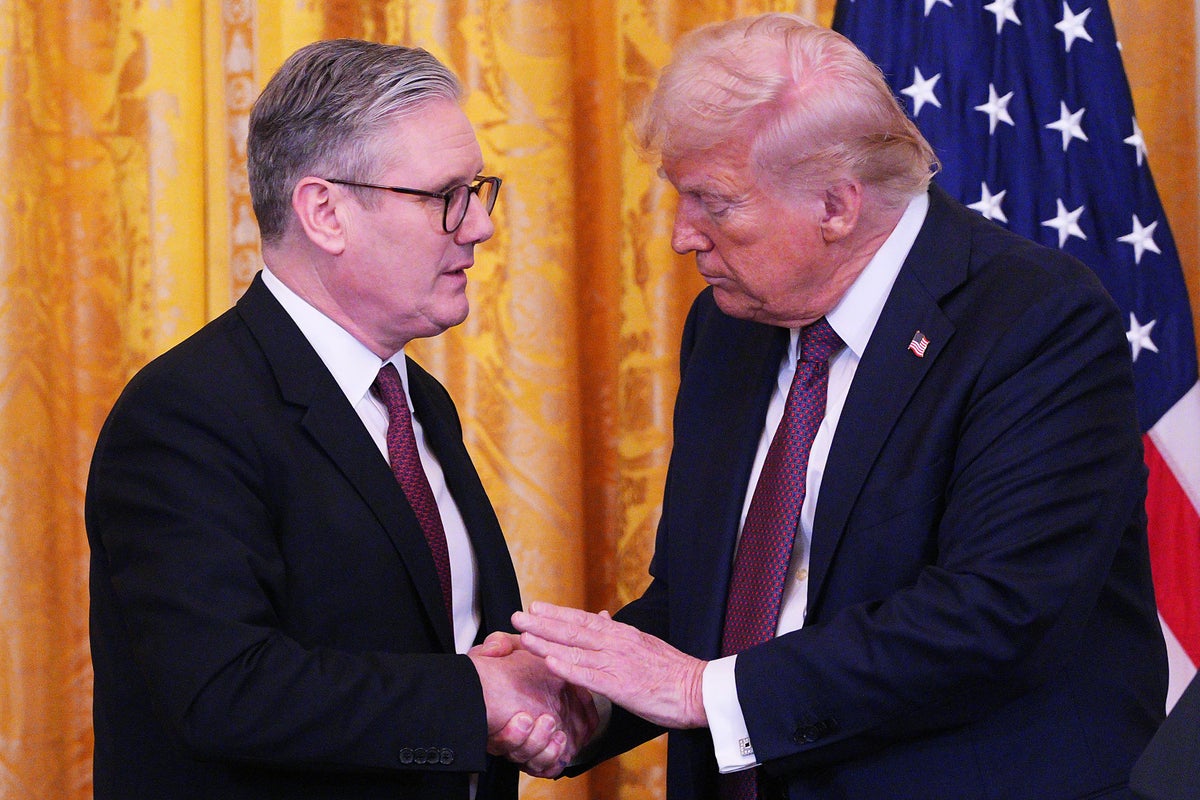
When Keir Starmer arrived to speak to journalists on Sunday morning at the British High Commission in Ottawa, there was a temporary distraction as one of the resident groundhogs made an appearance.
But in more than one way, the prime minister’s trip to Canada has the same “Groundhog Day” feel to it as the constant repetition of events seen in the famous comedy film of that name.
The G7 summit is taking place on Monday and Tuesday in Alberta as much of the world burns. With escalating crises in the Middle East and Ukraine, the leaders of the world’s top democracies have much to discuss.
But for Starmer, there are a number of issues to be revisited. He confirmed on the flight over that he will hold a mini-summit at the gathering, with representatives from France, Germany, Italy and the EU, over the continuing problems with illegal migration and small boats crossing the English Channel.
There has been much unhappiness about French police failing to stop migrants getting into boats to cross to the UK despite the £400m they have received from the UK taxpayer.
Defence secretary John Healey has expressed his angst in recent weeks.
But the prime minister said: “Look, one of the things we’ve worked hard at is improving the relations with the French in relation to the work we both need to do to stop these boat crossings, which I’m determined we will absolutely bear down on. Nobody should be making that journey.
“As a result of that, we are seeing much greater cooperation in northern France. I want to see more cooperation in northern France, and it’s an issue that I have raised and will raise again with President [Emmanuel] Macron.
“We have good relations between the home secretary and the interior minister, now that we’re working on it jointly. It’s one of the issues I’ll be discussing – not just with Macron, actually, but with Giorgia Meloni, Friedrich Merz, and others.”
While the G7 summit will include formal sessions on Ukraine, trade and the Middle East, much of the real business is done on the fringes in bilateral and group meetings.
For Starmer, the most important of these less formal meetings will be his chat with Donald Trump, who will be attending a G7 gathering for the first time since being re-elected to the White House in November.
Last time Trump was in Canada for a G7, in 2018, he ordered his team to unsign the joint communique because of a row with the then prime minister of Canada, Justin Trudeau. It threw the whole thing into chaos. This time, Trump is opposed to there being any joint communique at all.
Privately, Starmer does not seem to be confident that there will be any joint statements. Instead, he is looking to persuade Trump not to harm British interests. He wants the deal he agreed to last month with the US president to be implemented, with a deadline approaching on Wednesday.
If things are not agreed before Wednesday, UK steel could be hit with a 50 per cent tariff instead of the zero tariff previously agreed in their much-lauded framework deal.
Starmer told journalists: “We’ve shaken on the deal and we’re at the implementing stage now, which doesn’t actually require another shake of the hand, although I am sure there will be many shakes of the hand. I mean, we have reached the agreement and are now implementing it, and that is going on.”
Asked if it was “job done”, he replied: “Well, we are at the final stages. We had to do various things, they had to do various things, but I am very confident we’re implementing it.”
But he will also have defence on his mind with Trump. The two will talk about the US president’s decision to review the Aukus submarine deal between the US, the UK and Australia.
Starmer appears confident that he can ensure the White House does not pull the plug on a vital part of the defence infrastructure.
“Aukus is really important,” he said. “We’re fully committed to it. It’s not unusual for an incoming government to do a review of a project like that. We, of course, looked into the issue when we came into government, we had a look at it, and they’re doing their own review.
“But I’m 100 per cent committed to it, I’m really clear about that.”
Asked if he was confident that Trump would back it in the end, he said: “Yes, I think so. It’s a really important project, so I don’t have any doubt that this will progress.”
But at least Starmer can feel that he is among friends in Canada. He has spoken of his closeness to Canada’s new PM Mark Carney, the former governor of the Bank of England.
The two had dinner on Saturday night before watching the violence of the Stanley Cup ice hockey final featuring Carney’s favourite team, the Edmonton Oilers (who lost).
The body-checks and slamming against the ice, along with the incredible speed of the game, felt quite representative of the kind of diplomacy expected over the next two days. Starmer will need to be on his skates as he deals with the ice patches ahead.
